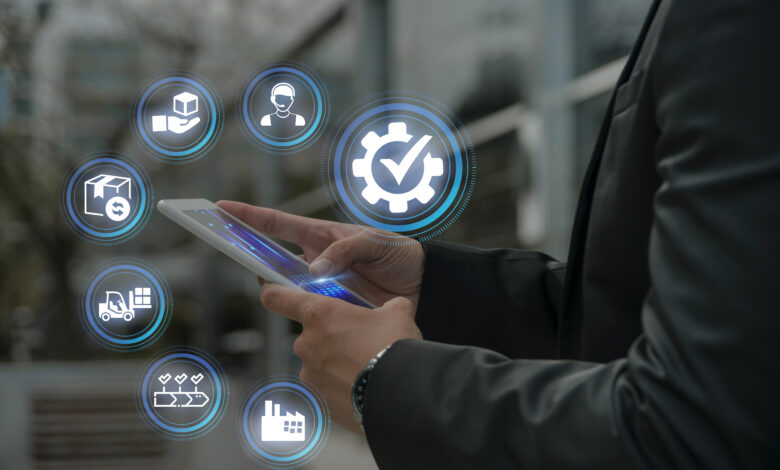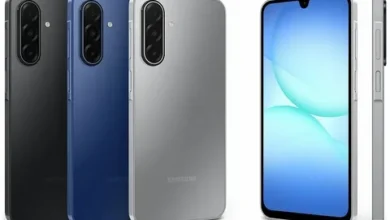Future-Proofing Hospitality Buildings: Technology Integration for Modern Guest Expectations

In the rapidly evolving hospitality landscape, guest expectations are undergoing a fundamental transformation. Modern travellers increasingly expect seamless technology experiences that enhance comfort, personalisation, and efficiency. At EnviroFWA, we recognise that integrating building systems with guest-facing technologies represents one of the most significant opportunities for hospitality businesses to differentiate themselves whilst optimising operational performance.
The concept of the “smart hotel” or “connected restaurant” has moved beyond novelty to become a competitive necessity. Properties that successfully integrate their building systems—HVAC, lighting, security, and more—with intuitive interfaces and personalised controls are seeing higher guest satisfaction ratings, improved operational efficiency, and reduced energy costs.
This comprehensive guide explores how hospitality businesses can future-proof their buildings through strategic technology integration, creating exceptional guest experiences while enhancing operational performance.
The Evolution of Guest Expectations
Before exploring specific technologies, it’s essential to understand how guest expectations are evolving:
From Amenities to Experiences
The modern hospitality guest values:
- Personalised environments adjusted to individual preferences
- Seamless control of room features without complicated interfaces
- Contactless interactions for check-in, room access, and services
- Sustainability features that allow participation in conservation efforts
- Reliable connectivity that supports multiple devices and applications
The Business Case for Technology Integration
Investment in integrated building technology delivers multiple returns:
- Enhanced guest satisfaction leading to improved ratings and repeat business
- Operational efficiency through automated monitoring and control
- Energy cost reductions of 15-30% through optimised system management
- Staff productivity improvements by reducing routine adjustment tasks
- Competitive differentiation in increasingly demanding markets
- Extended equipment life through optimised operation
Integrated Building Management Systems: The Foundation
At the core of any future-proofed hospitality building lies an integrated Building Management System (BMS) that connects and coordinates various building components.
Essential BMS Capabilities for Hospitality
Modern hospitality-focused BMS solutions should offer:
- Centralised monitoring of all major building systems
- Remote access for management and maintenance staff
- Automated alerts for anomalies or maintenance requirements
- Energy consumption analytics with usage patterns and optimisation suggestions
- Integration capabilities with Property Management Systems (PMS)
- Scalable architecture that accommodates future technologies
- Mobile interfaces for staff to address issues without returning to central controls
Key Systems for Integration
A comprehensive BMS typically encompasses:
1. HVAC Systems
Modern air conditioning systems with integration capabilities allow:
- Zone-based temperature control
- Occupancy-based operation
- Predictive maintenance through performance monitoring
- Load balancing to optimise energy consumption
- Integration with guest controls for personalised comfort
2. Lighting Systems
Integrated lighting delivers both efficiency and ambience:
- Automated scheduling based on daylight and occupancy
- Scene-setting for different functions and times
- Integration with guest preferences and room controls
- Occupancy detection to eliminate wasted illumination
- Daylight harvesting to reduce artificial lighting when natural light is sufficient
3. Security and Access Control
Modern security integrates with operational systems:
- Keyless entry systems linked to property management
- Occupancy detection for environmental controls
- Motion detection integrated with lighting and HVAC
- CCTV systems with intelligent monitoring capabilities
- Fire detection systems with building-wide response coordination
4. Water Management Systems
As detailed in our exploration of water efficiency in hospitality, integrated water systems offer:
- Leak detection with automated alerts
- Temperature monitoring for safety and compliance
- Usage pattern analysis for efficiency improvements
- Integration with guest usage information
- Predictive maintenance for pumping systems
5. Power Management
Intelligent electrical systems provide:
- Real-time consumption monitoring by area or function
- Load balancing to optimise utility costs
- Integration with renewable energy sources
- Power quality monitoring to protect sensitive equipment
- Automated demand response to utility pricing signals
Our electrical services include assessment and implementation of intelligent power management systems that integrate with broader building controls.
Guest-Facing Technology Integration
The most successful hospitality businesses seamlessly connect building systems with guest-facing technologies to create intuitive, responsive environments.
Room Control Systems
Modern guest room controls have evolved significantly:
Mobile App Integration
- Room controls accessible through hotel-branded apps
- Pre-arrival preference setting for lighting, temperature and services
- Service requests linked to facilities management systems
- Automated check-in/out with room system activation/deactivation
- Usage tracking for personalisation on return visits
Voice-Activated Controls
- Natural language interfaces for lighting, temperature, and entertainment
- Integration with popular voice assistant platforms
- Multi-language support for international guests
- Privacy modes with clear activation/deactivation
- Service request capabilities linked to management systems
Smart Room Panels
- Intuitive touch interfaces with a consistent design language
- Personalised welcome screens and preference memory
- Scene setting for different activities (work, relaxation, sleep)
- Energy usage feedback and conservation options
- Integration with housekeeping and maintenance systems
Case Study: Boutique Hotel, Belfast City Centre
A 62-room boutique hotel in Belfast implemented integrated guest and building systems:
- Room-level environmental controls with mobile app integration
- Occupancy-based HVAC and lighting management
- Keyless entry system linked to property management
- Energy monitoring with automated optimisation
- Predictive maintenance for key building systems
Results:
- 24% reduction in energy consumption
- Guest satisfaction scores increased by 18%
- Maintenance response time reduced by 67%
- ROI achieved within 30 months
- Significant differentiator in local market positioning
Environmental Monitoring and Indoor Air Quality
The pandemic has accelerated guest interest in air quality and environmental health, creating new integration opportunities.
Air Quality Monitoring and Management
Integrated air quality systems offer:
- Real-time monitoring of CO2, VOCs, particulates and humidity
- Automated ventilation adjustment based on air quality parameters
- Ventilation system integration with occupancy information
- Filtration system monitoring and maintenance alerts
- Guest-facing air quality information through room controls or apps
Thermal Comfort Optimisation
Advanced thermal management includes:
- Micro-zoning for precise comfort control
- Predictive algorithms that learn guest preferences
- Integration with weather data for proactive adjustments
- Humidity control coordinated with temperature settings
- Energy recovery systems that maintain comfort while reducing consumption
Our air conditioning services include the implementation of these advanced thermal comfort solutions.
Data-Driven Operational Optimisation
Beyond guest experience, integrated building systems generate valuable operational insights.
Predictive Maintenance Capabilities
Integrated systems enable advanced maintenance approaches:
- Real-time equipment performance monitoring
- Anomaly detection before failure occurs
- Automated diagnostics to identify specific issues
- Maintenance scheduling based on actual conditions
- Parts inventory management based on predictive needs
These capabilities complement our planned maintenance services for optimal system reliability.
Space Utilisation Optimisation
Data from integrated systems helps optimise property usage:
- Occupancy pattern analysis for staffing optimisation
- Traffic flow monitoring for space planning
- Utilisation metrics for function areas and amenities
- Energy usage patterns correlated with occupancy
- Environmental preferences by guest demographic or room type
Resource Consumption Analytics
Detailed consumption data enables targeted efficiency improvements:
- Energy usage breakdowns by system, area, and time
- Water consumption patterns and anomaly detection
- Peak demand identification and management
- Benchmarking against similar properties
- ROI calculation for efficiency investments
Mobile Control and Monitoring Solutions
Staff mobility is enhanced through integration with portable devices.
Mobile Maintenance Management
Mobile solutions for maintenance staff include:
- Real-time alert delivery with prioritisation
- Access to equipment documentation and history
- Remote system adjustments and testing
- Digital work order management
- Photo documentation of issues and resolutions
Management Dashboards
Executive dashboards provide comprehensive operational visibility:
- Real-time performance metrics for key systems
- Customisable views based on role and priorities
- Comparative analytics against historical performance
- Predictive indicators for operational planning
- Integration with financial and guest satisfaction data
Connectivity Considerations for Building Systems
Reliable, secure connectivity forms the foundation of integrated building systems.
Network Infrastructure Requirements
Robust infrastructure requires:
- Segregated networks for guest and operational systems
- Redundant connectivity to prevent system failures
- Sufficient bandwidth for growing data requirements
- Edge computing capabilities for time-sensitive functions
- Power backup systems for network components
Cybersecurity Considerations
Integrated systems require comprehensive security approaches:
- Segmented architecture to limit breach impacts
- Encryption for all sensitive data transmission
- Regular security audits and vulnerability testing
- Access control with role-based permissions
- Vendor security verification for all integrated systems
- Update management to address security patches
Our electrical testing services include assessment of power quality and reliability for critical network infrastructure.
Phased Implementation Strategies
Successful technology integration typically follows a phased approach that manages both capital expenditure and operational disruption.
Assessment and Planning Phase
- System audit to document current infrastructure and capabilities
- Integration potential assessment for existing equipment
- Guest experience mapping to identify high-impact opportunities
- ROI modelling for various integration scenarios
- Stakeholder engagement to align expectations and requirements
Foundation Systems Implementation
- Network infrastructure upgrading to support integration
- Building management system implementation or enhancement
- System-level controls for major equipment categories
- Data collection framework establishment
- Staff training on new systems and interfaces
Guest-Facing Technology Deployment
- Room control systems in the pilot area
- Mobile application development and testing
- Front-of-house integration with operational systems
- Guest feedback collection and system refinement
- Full property deployment with marketing support
Advanced Integration Phase
- Predictive analytics implementation for major systems
- AI-driven optimisation for environmental controls
- Automated maintenance systems integration
- Enhanced personalisation capabilities development
- Continuous improvement framework establishment
ROI Expectations and Budget Considerations
Technology integration investments deliver returns through multiple channels.
Typical Investment Requirements
Investment levels vary by property type and existing infrastructure:
| Integration Level | Investment Range (per room) | Key Components |
| Basic Integration | £500-1,000 | • Networked thermostats
• Smart lighting controls • Basic room control panels • Central monitoring system |
| Intermediate Integration | £1,000-2,500 | • Full BMS integration
• Mobile app controls • Keyless entry • Energy management system • Predictive maintenance |
| Comprehensive Integration | £2,500-5,000+ | • Voice control systems
• Full IoT implementation • Advanced analytics platform • Personalisation engine • Complete system automation |
Return on Investment Factors
ROI calculations should include:
- Energy cost reductions: Typically 15-30% through optimised operation
- Operational labour savings: 10-20% reduction in routine adjustments and inspections
- Maintenance cost reductions: 15-25% through predictive approaches
- Extended equipment life: 10-15% longer service life through optimised operation
- Revenue premium: 5-15% rate premium for technology-enhanced rooms
- Occupancy improvements: 3-8% through competitive differentiation
Most mid-level integrations achieve complete ROI within 2-4 years, with ongoing benefits throughout the system lifecycle.
Future Technologies to Monitor
The technology landscape continues to evolve rapidly, with several emerging trends worth monitoring:
Artificial Intelligence and Machine Learning
- Predictive algorithms for personalisation
- Automated optimisation of building systems
- Natural language processing for guest interactions
- Anomaly detection for security and maintenance
- Staff workflow optimisation
Internet of Things (IoT) Evolution
- Miniaturised sensors for expanded monitoring
- Mesh networks for improved connectivity
- Energy harvesting for wireless devices
- Edge computing for real-time response
- Expanded integration capabilities
Augmented Reality Applications
- Maintenance guidance for technical staff
- Guest navigation and information overlays
- Training applications for operational staff
- Virtual property tours and room previews
- Enhanced guest experiences and entertainment
Conclusion: Strategic Technology Integration as Competitive Advantage
Future-proofing hospitality buildings through strategic technology integration represents not merely a technical upgrade but a fundamental business strategy. Properties that successfully implement these systems create environments that respond intuitively to guest needs while operating with unprecedented efficiency.
At EnviroFWA, our integrated approach to building systems positions us as the ideal partner for hospitality businesses looking to enhance their technological capabilities. From air conditioning and refrigeration to electrical services and planned maintenance, our expertise ensures that your integrated systems deliver optimal performance throughout their lifecycle.
Contact our team today to discuss how technology integration could transform your hospitality business, enhancing guest experiences while optimising operational performance.
To further enhance E-A-T signals, consider adding an external link to an authoritative source such as the Building Controls Industry Association (BCIA) or CIBSE guidance on smart buildings in the hospitality sector.



